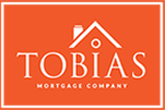
How Is The Loan Eligibility Accessed?
The dream of buying a house brings immense joy. However, when acknowledging its financial aspects, things can get unfathomable. Whether seeking a home loan in Roseville, Rocklin, or any other location, understanding how lenders assess loan eligibility is pertinent. Read the complete blog to get insight into the factors lenders consider when determining your eligibility for a house loan. Let’s get started!
Evaluating Loan Eligibility: What Factors Come into Play?
●Employment and Income:
First and foremost, lenders want to ascertain that you have a steady income source to cover your loan payments. They’ll assess your work history and current job to evaluate your loan eligibility. Consistent income and a solid job track help you qualify for a loan.
●Credit Score:
Your credit score demonstrates your financial responsibilities. Lenders use this score to determine your financial standing and likelihood of repaying your loan on time. A higher credit score may result in better loan conditions and eligibility.
●Debt-to-Income Ratio:
The DTI ratio compares your monthly debt payments to your monthly income. A lower DTI indicates to lenders that you have better financial capacity to pay off additional loan payments.
●Down Payment:
The ability to make a down payment substantially influence your loan eligibility. A greater down payment minimizes the loan amount required while demonstrating dedication to the investment.
●Property Value:
The property directly serves as security for home loans. Lenders will evaluate the property’s worth to ensure it corresponds to the loan amount. The greater the property’s value concerning the loan, the better your eligibility.
●Loan-to-Value Ratio:
The loan-to-value (LTV) ratio compares the loan amount to the property value. While seeking a home loan in Rocklin, a lower LTV ratio is typically preferable since it indicates a reduced risk for the lender.
●Loan Type and Term:
The eligibility conditions for various loan kinds and terms differ. The loan duration (e.g., 15 or 30 years) and whether it’s a fixed or adjustable-rate mortgage can all influence your eligibility and loan conditions.
●Reserve Funds:
Lenders generally want to verify that you have a cash buffer if any emergency arises. Having a reserve amount in your bank account might improve your loan eligibility.
●Loan Programs and Offers:
Eligibility requirements differ between lenders and lending programs. Thus, evaluate and contrast multiple offers to identify the best fit for your financial circumstances and aspirations.
●Pre-approval Process:
Getting pre-approved for a home loan is imperative, clarifying your eligibility while making you a more appealing buyer to sellers.
Final Thoughts
Comprehending the realm of home loans necessitates grasping how loan eligibility is determined. Factors like income, credit score, debt-to-income ratio, down payment, property value, and so forth substantially increase your chance of getting approved for a loan. Engage a qualified and experienced loan officer to assist you through the process to strengthen your loan approval probability that aligns with your dreams and financial goals.
